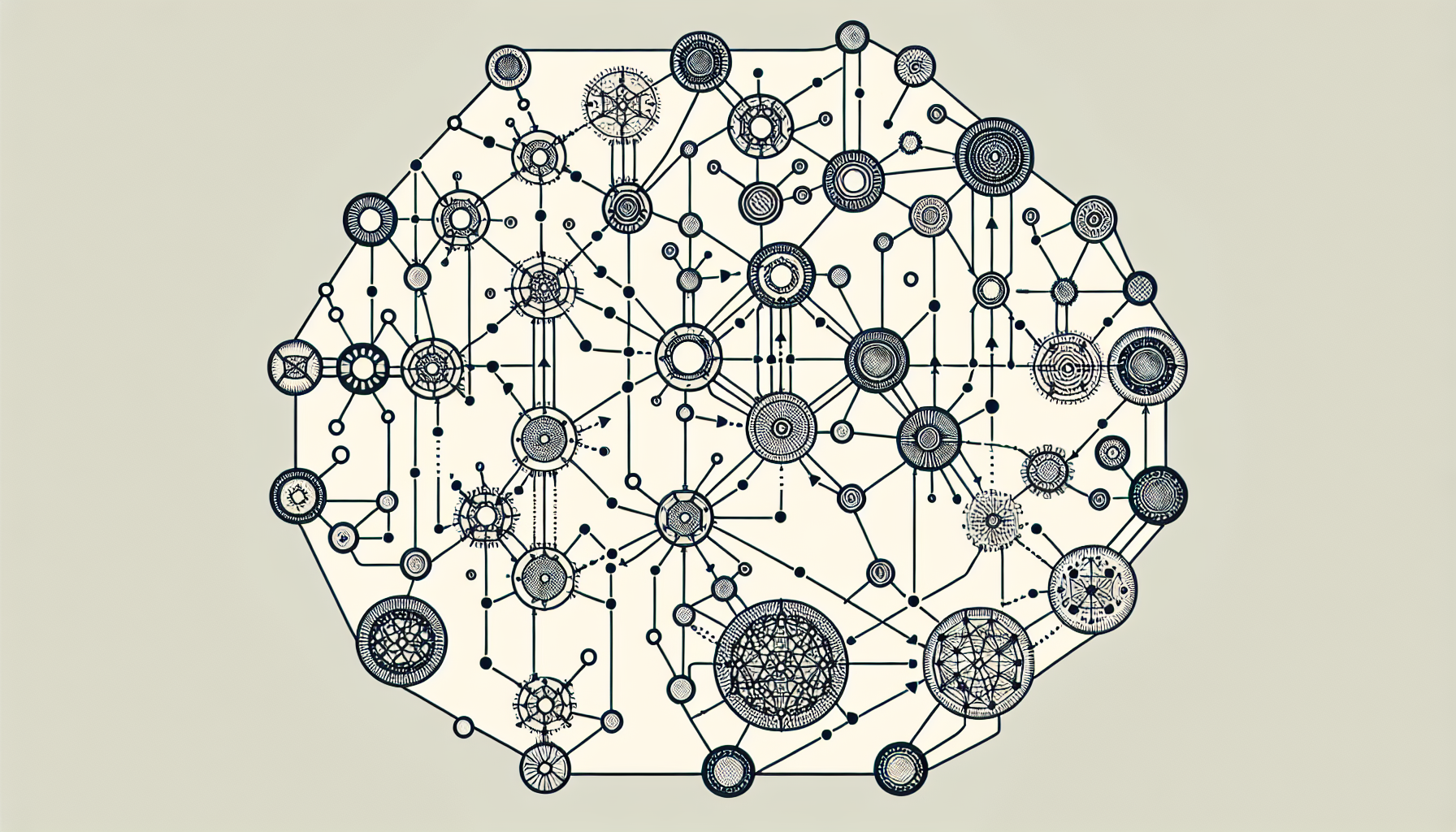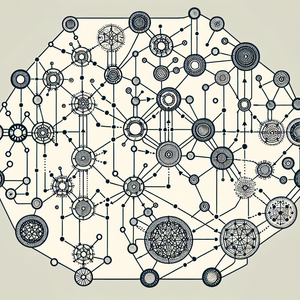The Hidden World of Systems Engineers

At its core, systems engineering is an interdisciplinary approach that focuses on the design, integration, and management of complex systems. Systems engineers are responsible for ensuring that various components work together seamlessly to achieve desired outcomes. Their work spans a wide range of industries, including aerospace, automotive, healthcare, and information technology.
Aerospace and Defense
In the aerospace sector, systems engineers play a pivotal role in the development of aircraft and spacecraft. They are involved in everything from initial concept design to testing and deployment. For instance, engineers at NASA engage in systems engineering to coordinate the myriad subsystems involved in a space mission, ensuring that everything from propulsion to life support systems operate flawlessly together. The successful landing of the Mars Rover, Perseverance, is a testament to the rigorous systems engineering processes that integrate complex technologies to explore distant worlds.
Software Development
In the realm of software engineering, systems engineers are critical in bridging the gap between technical development and user needs. They help define system requirements, ensuring that software applications meet performance, usability, and security standards. Companies like Google employ systems engineers to streamline software deployment processes and enhance system reliability. For example, systems engineers at Google work on the integration of cloud services, ensuring that end-users experience seamless performance while benefiting from robust back-end support.
Healthcare
In healthcare, systems engineers work on projects that improve patient care and operational efficiency. They might develop systems for managing electronic health records or optimizing hospital workflows. For example, systems engineers at major healthcare institutions apply their skills to integrate various technologies, allowing for better data sharing and improved patient outcomes. The implementation of telehealth services during the COVID-19 pandemic showcased the importance of systems engineering in rapidly adapting healthcare systems to meet emerging needs.
Automotive Industry
The automotive industry relies heavily on systems engineers to develop complex vehicle systems, including advanced driver-assistance systems (ADAS). These engineers ensure that all components, from sensors to control algorithms, function harmoniously to enhance safety and performance. Companies like Tesla and Ford invest in systems engineering to innovate and improve their vehicles continually. The introduction of fully autonomous vehicles exemplifies the critical role of systems engineers in navigating the intricate relationships between hardware and software.
Essential Skills and Tools for Systems Engineers
To thrive in their roles, systems engineers must possess a unique blend of technical and soft skills. Here are some of the most critical competencies: - **Systems Thinking:** The ability to view problems holistically and understand how different components interact within a system is paramount. Systems engineers must anticipate potential issues and design systems that are robust and adaptable. This skill is also vital in identifying bottlenecks and inefficiencies within complex systems. - **Communication Skills:** Given that systems engineers collaborate with multidisciplinary teams, effective communication is crucial. They must be able to convey complex technical concepts to non-technical stakeholders clearly. This skill is essential in facilitating discussions among engineers, project managers, and clients to ensure alignment on goals and expectations. - **Analytical Skills:** Systems engineers must analyze large volumes of data to make informed decisions and optimize system performance. Proficiency in data analysis tools and techniques is essential for identifying trends, predicting outcomes, and implementing improvements. - **Project Management:** Systems engineers often oversee projects from inception to completion, requiring strong project management skills to ensure timelines and budgets are adhered to. Familiarity with project management methodologies, such as Agile or Waterfall, enhances their ability to lead diverse teams effectively. - **Familiarity with Engineering Tools:** Proficiency in tools like MATLAB, Simulink, and various modeling software is vital for systems engineers, enabling them to design and simulate complex systems effectively. Mastery of these tools allows engineers to visualize system interactions and test various scenarios before physical implementation.
The hidden world of systems engineers is rich with diversity and innovation, encompassing a range of industries and responsibilities. As technology continues to evolve, the demand for skilled systems engineers will only grow, making it essential to understand their vital role. By shedding light on their contributions, we can appreciate the intricacies of the systems that shape our lives and recognize the professionals who make it all possible. Whether in aerospace, software, healthcare, or automotive industries, systems engineers are the unsung heroes ensuring that complex systems function efficiently and effectively, driving progress and innovation in our ever-changing world.
Systems Architect
IBM, Accenture, Lockheed Martin
Core Responsibilities
Design and implement architecture for complex systems, ensuring scalability and performance.
Collaborate with stakeholders to define system requirements and integrate various components effectively.
Conduct risk assessments and develop mitigation strategies to address potential system failures.
Required Skills
Strong understanding of architectural frameworks (e.g., TOGAF, Zachman).
Proficiency in modeling languages such as UML or SysML.
Excellent problem-solving and analytical skills.
Requirements Engineer
Siemens, Northrop Grumman, Boeing
Core Responsibilities
Gather, analyze, and document requirements from stakeholders to inform system design.
Facilitate communication between technical teams and non-technical stakeholders to ensure alignment on project goals.
Conduct requirements validation and traceability throughout the project lifecycle.
Required Skills
Experience with requirements management tools (e.g., Jira, DOORS).
Strong verbal and written communication skills for effective stakeholder engagement.
Detail-oriented with a focus on user experience and functionality.
Systems Integration Engineer
Tesla, General Dynamics, Honeywell
Core Responsibilities
Oversee the integration of diverse subsystems into a cohesive operational system.
Perform system testing and troubleshooting to identify and resolve integration issues.
Develop integration plans and documentation to guide project execution and future maintenance.
Required Skills
Proficiency in programming languages (e.g., C++, Python) for automation and integration tasks.
Familiarity with integration protocols and standards (e.g., REST, SOAP).
Strong analytical skills to assess system performance and identify improvement opportunities.
Cybersecurity Systems Engineer
Raytheon, Lockheed Martin, Cisco
Core Responsibilities
Design and implement security protocols to protect complex systems from cyber threats.
Conduct vulnerability assessments and risk analysis to strengthen system defenses.
Collaborate with cross-functional teams to ensure security measures align with overall system architecture.
Required Skills
Knowledge of cybersecurity frameworks (e.g., NIST, ISO 27001).
Proficiency in security tools and technologies (e.g., firewalls, intrusion detection systems).
Strong understanding of network architecture and security principles.
Model-Based Systems Engineer (MBSE)
NASA, Boeing, Thales
Core Responsibilities
Utilize model-based methodologies to define system requirements, architecture, and design.
Develop system models using tools like SysML or UML to visualize interactions and components.
Collaborate with multidisciplinary teams to ensure models accurately reflect system behavior and requirements.
Required Skills
Experience with MBSE tools (e.g., Cameo Systems Modeler, MagicDraw).
Strong analytical skills to interpret models and provide insights for decision-making.
Excellent communication skills to articulate complex concepts to diverse audiences.


